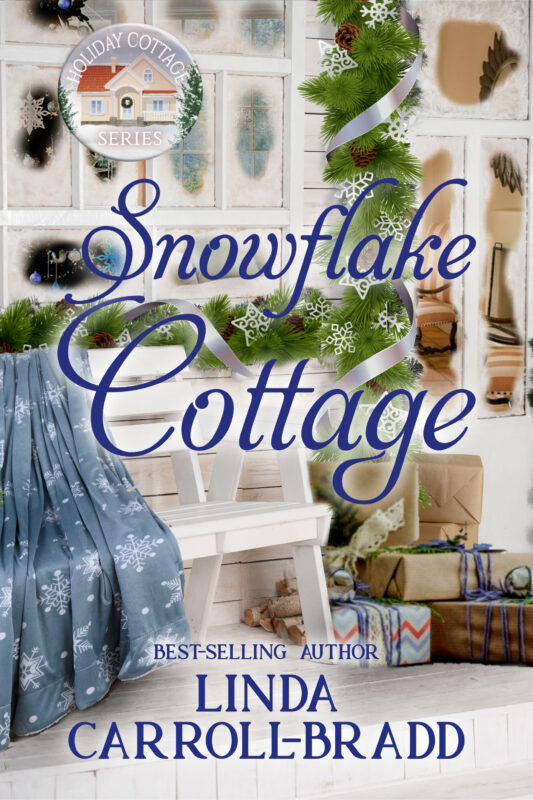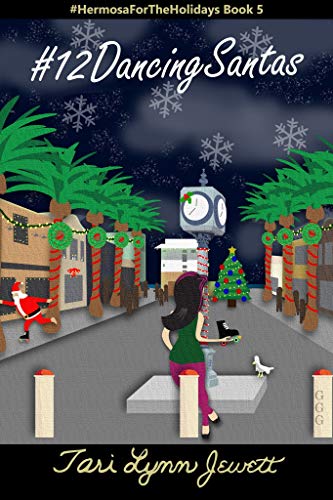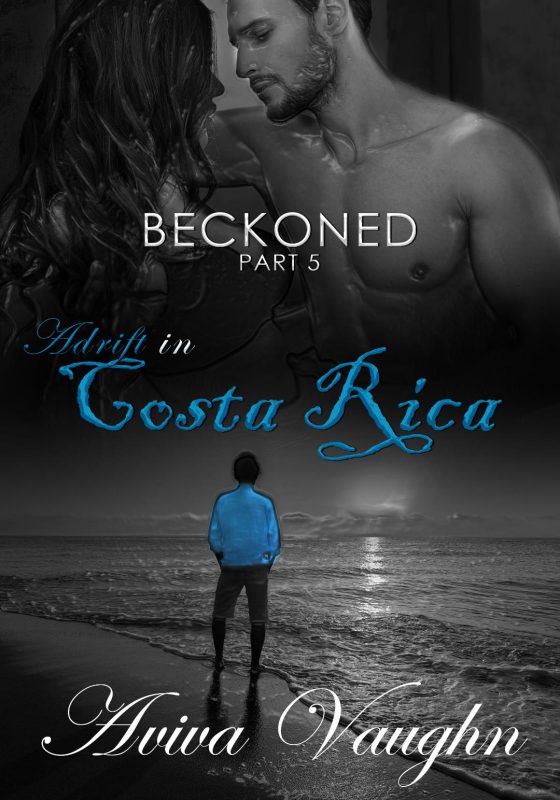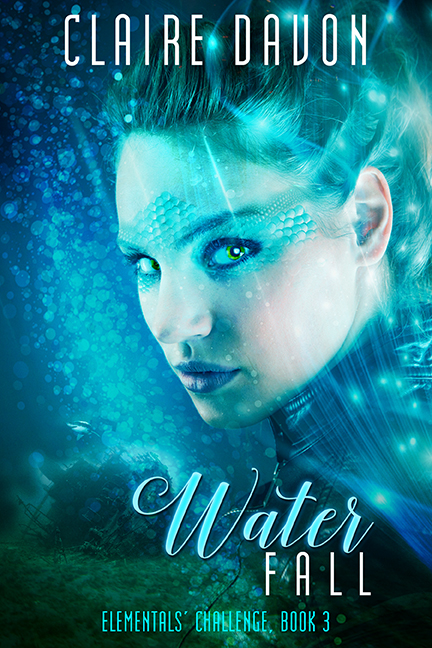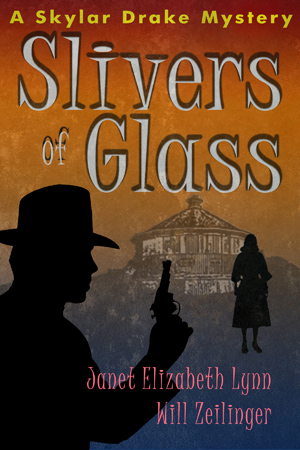Is Your ‘Plate’ Too Full? by @Rebecca_Forster
November 15, 2017 by Rebecca Forster in category The Write Way by Maureen Child tagged as Craft, editing, solutions, writing Today my November plate is officially too full.
Today my November plate is officially too full.
It has been piled high with cold, flu conferences, a last minute, out of country speaking engagement and now a medical screening that needs a follow-up. Of course, there are also everyday things that pile on to the plate: bills, calls from my sons, the tennis league I belong to, dinner to cook and bathrooms to clean. I’m not complaining. This is all just life and good stuff if you take the cold and medical appointments out of the equation. Still, filling out my calendar and trying to figure out how I’m going to fit quality writing time in the schedule made me think about the craft of writing a novel. The question on my mind was how much is too much before a reader throws up her hands and pushes the literary plate away?
As a thriller writer, I love to go over the top. Unfortunately, I can get a bit too energetic and take the technique to crazy extremes. It’s a fault. No, it’s worse than a fault. It’s a sin to be so involved with own words that I forget my job is to entertain not challenge someone to wade through my excesses. When I do go overboard, I am giving my readers a reason to push away the literary plate I have served them.
Luckily, there are remedies for ‘too much’ writers like me. In real life we say no to many things, so let’s start saying it in our fiction. Here are three ways to figure out if you just served your reader a plate that is too full.
[tweetshare tweet=”Three ways to figure out if you just served your reader a ‘plate’ too full by @Rebecca_Forster” username=”A_SliceofOrange”]
Echo: A particularly inspired turn of phrase, description or character quirk is a thing of beauty. Constant use of the same phrase or description or a continual reminder of the quirk is an annoyance. Readers are smart and imaginative. They will get it.
Blow-by-Blow : No pun intended, but sex scenes are more effective and dramatic if they are evocative rather than clinical. The same rule of thumb applies to shootouts, character travel or any scene that stops the reader and forces them to linger without a point. Move the story forward using varied sentence structure and only critical physical descriptions.
Cast of Thousands: Have you ever tried to find a friend in a crowd? It’s impossible because all you can see is a blur of humanity. The same thing happens to a reader if there are too many characters populating your book. Think of your book as a play. Characters may come and go but the ones we care about should always be center stage.
While you edit look for the echo, the blow-by-blow and the cast of characters and adjust the emphasis, streamline the structure and your literary plate will go from too full to too fabulous.
Rebecca
Drafts by Jenny Jensen, Editor @A_SliceofOrange
October 19, 2017 by Jenny Jensen in category On writing . . . by Jenny Jensen tagged as editing, Editors, first drafts, Quotes Drafts
Drafts
I love quotes. I collect them, especially quotes about writing from writers I particularly respect. Since I work with writers of all levels from beginners to veterans, I find that sometimes the perfect quote from an established writer is exactly what I need to reinforce a point – so I use my collection well.
I just took on a new client who sent an outline for her first novel. The outline included a précis of the plot, quick character sketches, a few narrative bits on action scenes and several options for an ending. Buried in these concepts were the seeds of a very fresh new voice. I’m excited; it’s the kind of challenge I relish. It’s the perfect opportunity to ask the right questions, provide possibilities and help guide the story to a solid structure – all of which greases the writer’s creative wheels – the give and take nudging them to the path they want for their story.
Shitty First Drafts
The problem was the writer didn’t want to write a draft; she wanted to work with me to get the story full blown in her head then sit down at the keyboard and spit out a finished novel. Oh dear. I imagine there are writers who can do that but they’re as rare as the ivory-billed woodpecker. As Anne Lamott put it in her essay, Shitty First Drafts: “I know some very great writers, writers you love who write beautifully and have made a great deal of money, and not one of them sits down routinely feeling wildly enthusiastic and confident. Not one of them writes elegant first drafts. All right, one of them does, but we do not like her very much.”
“The first draft is just you telling yourself the story.” (TY Terry Pratchett.)
All first drafts suck. It’s a universal law. But it’s where you have to start. “The first draft is just you telling yourself the story.” (TY Terry Pratchett.) So give yourself permission to just spill it, write the most vapid dialog ever if that’s what comes out. It’s OK – it’s a draft. Just get the story out. If you find yourself using more adjectives than Danielle Steele and Judith Krantz combined then this is the place to do it. It’s a draft -no one will ever see it (except me but that’s all right ‘cuz I’ll never tell). Stewart Stafford hit the bull’s eye, “It’s okay to write a cliché in a first draft; it sets a marker that you can get far, far away from in the rewrites.”
The Rewrites
That’s what a draft is for – the rewrites. Here’s where the painful process of filling the blank page becomes fun. You see the flaws and get to slash and revise, hear the perfect dialog over the noise of what you drafted, maybe see a new direction in the wreckage. I’ve encouraged my client to write a first draft. I’ll happily work with her from that, but I bet she goes over it first – who could resist? Draft one or draft two, I don’t care. I can’t wait to see it.
Jenny

Jenny Jensen
Editor
www.e-bookeditor.com
With a BA in Anthropology and English I pursued a career in advertising and writing and segued into developmental editing. It was a great choice for me. I love the process of creating and am privileged to be part of that process for so many great voices — voices both seasoned and new.
I’ve worked on nearly 400 books over 20 years, books by noted authors published by New York houses including Penguin, Kensington, Pentacle and Zebra as well as with Indie bestsellers and Amazon dynamos. From Air Force manuals and marketing materials to memoirs, thrillers, sci fi and romance, my services range from copyediting to developmental coaching.
Having worked in advertising and marketing, I am always cognizant of the marketplace in which the author’s work will be seen. I coach for content and style with that knowledge in mind in order to maximize sales and/or educational potential. My objective is to help the author’s material stand out from an ever more crowded and competitive field.
6 0 Read moreGETTING IT DONE by @JanetLynn4 and @Will_Zeilinger
October 3, 2017 by Janet Elizabeth Lynn and Will Zeilinger in category Partners in Crime by Janet Elizabeth Lynn & Will Zeilinger tagged as co-writing, editing, hard-boiled mysteries, partners When you write with a partner you have a common goal of telling a story and getting it down so it can be edited. Our process is a bit odd to some because after the brainstorming, research, outlining, and first draft are completed we take turns adding scenes, embellishing the dialog, and massaging or decorating the scenes. We turn the manuscript over to the other and go through the same process. This back and forth helps us to see the way the other partner is thinking. During that time, the one not editing can do more in depth research to find some interesting things that will help bring the story to life.
When you write with a partner you have a common goal of telling a story and getting it down so it can be edited. Our process is a bit odd to some because after the brainstorming, research, outlining, and first draft are completed we take turns adding scenes, embellishing the dialog, and massaging or decorating the scenes. We turn the manuscript over to the other and go through the same process. This back and forth helps us to see the way the other partner is thinking. During that time, the one not editing can do more in depth research to find some interesting things that will help bring the story to life.

An extra hand
One of the most important aspects of writing as a team is reading the completed chapters aloud to one another. This allows us to listen to the flow of the story and (since there are two of us) the consistency of voice. During the readings we sometimes get “AHA!” moments and find the story making a dramatic shift or turn as a result. At this stage we sometimes eliminate a character who is getting in the way or bring one back whom we hadn’t heard from since chapter three. We’ll have to admit there have also been times when a character’s name needed to be changed, because we found their name was too hard to pronounce during the reading. We also tried to keep vocabulary simple enough that the reader doesn’t have to get out the dictionary to figure out what our characters are saying.
As writing partners, we also learn that inspiration and great ideas can occur at any moment. Recently, we were on a cruise and through a conversation with some of the other passengers, Janet came up with a terrific scene that she couldn’t wait to type in. We didn’t have access to a printer but when she read it to me, I knew it was perfect for the story.
We may not always agree on changes, but sharing the tasks of editing gives each partner a chance to take a break from the red pen.

Published authors Will Zeilinger and Janet Lynn had been writing individually until they got together and wrote the Skylar Drake Mystery Series. These hard-boiled tales are based in old Hollywood of 1955. Janet has published seven mystery novels, and Will has three plus a couple of short stories. Their world travels have sparked several ideas for murder and crime stories. This creative couple is married and lives in Southern California.
If you’re in the Long Beach, CA area, go see Janet and Will at Gatsby Books.
Saturday, October 7th from 3:00 to 5:00 pm.

Editing Nightmare
September 22, 2017 by Veronica Jorge in category Write From the Heart by Veronica Jorge tagged as editing, Veronica Jorge, writing life I think I’m obsessed with editing.
I think I’m obsessed with editing.
I’ve revised my novel so many times it feels different than what I started with. Maybe that’s a good thing. But sometimes I find that I’m my harshest critic and at night, when I most want to rest, I turn into a berserk editor.
Last night I dreamed I was in a commercial demonstrating a slicing and dicing machine.
I was chopping up words, not food.
The previous night I saw myself seated behind a desk with a plaque that read, ‘Veronica Jorge, Editor, You imagine it, we print it.’ A distinguished looking gentleman cringed before me, chewing on his thick mustache and nervously wiping his spectacles with a white starched handkerchief. My contorted face ridiculed his manuscript.
“O.K. bud, let me get this straight. You’ve got an orphan girl; lonely, bored, misunderstood. She gets whooshed up into a tornado and winds up in a magical realm where they’re ready to worship her. And all she wants to do is go back to her dreary life on a dilapidated farm? You just set up your plot to fail!
Try a different spin. This chick; Dorothy, right? Have her use her powers to control the munchkins then march them into Oz and take out the Wizard. She rules, hooks up with the scarecrow and they have some off- the -wall kids.
Now, you’ve got a story!”

In the third nightmare, I sat behind the editor desk again. This time the plaque read, ‘Home Girl Publications, You dish it out, we can take it.’
I tore into the lovely author. My words curdled her milky complexion.
“No way readers gonna connect or sympathize with these March girls puttin’ on plays, gawkin’ at the lanky shorty next door and mopin’ after poor ole daddy gone off to war.
We got sisters out there dealin’ with real-life issues. Some got husbands serving in Afghanistan or Iraq. Others are strugglin’ as single moms with wannabe men and make-believe daddies sweatin’ ‘em. All of them doin’ it for theirselves; holdin’ down two, sometimes three, jobs just to make ends meet and put food on the table for the kids.
You gotsta keep it real, honey. Nameen?”
I wake each time, heart pounding and stressed over getting my novel perfect, and I ask myself whether I should continue writing.
The answer is always a resounding, “Yes”, because the story is the story of me and I must write it, if only just for me. Maybe then the nightmares will cease because it seems that my peace is contained in my novel’s completion.
See you next time on October 22nd.

Veronica Jorge
Manager, Educator, and former High School Social Studies teacher, Veronica credits her love of history to the potpourri of cultures that make up her own life and to her upbringing in diverse Brooklyn, New York. Her genres of choice are Historical Fiction where she always makes new discoveries and Children’s Picture Books because there are so many wonderful worlds yet to be imagined and visited. She currently resides in Macungie, PA.
0 0 Read more
Say What!?
September 19, 2017 by Jenny Jensen in category On writing . . . by Jenny Jensen tagged as editing, reading, Revising, writing Every writer has to be an editor to some degree. Reading and revising what you’ve written is the first line of attack; the skirmish before an editor gets unbiased hands on the work. What are you looking for when you edit your own work? Search and destroy all worm words, cut down on adverbs and adjectives, delete extraneous dialog tags, trim unneeded prose; there is a ton of excellent advise on the web to help with a self-edit. But can it help you catch the muddle?
Every writer has to be an editor to some degree. Reading and revising what you’ve written is the first line of attack; the skirmish before an editor gets unbiased hands on the work. What are you looking for when you edit your own work? Search and destroy all worm words, cut down on adverbs and adjectives, delete extraneous dialog tags, trim unneeded prose; there is a ton of excellent advise on the web to help with a self-edit. But can it help you catch the muddle?
When you are on that heady writing roll where the words just flow and the story unfolds in your mind like a film then you write what you’re seeing — it’s a grand feeling. Just be sure you wrote what you meant to convey. When you reread those words you’re fixed on the meaning you intended. When an editor reads those same words they… just might laugh. Ah the consequence of the unintended.
I’ve encountered this muddle most where eyes are involved. Probably because it’s said that the eyes are windows to the soul. We’ve imbued two innocent organs with a near paranormal ability to transmit intent. And I think they can. The face is expressive but the eyes really can appear shifty, or soulful or hurt. And if you’ve ever really pissed your mom off, then you know that eyes can harden in anger. But there’s a thin line between expressive eyes and hilarious word play.
He lied. His eyes gave him away, gaze dropping fast to the floor and remaining there. Well, pick that gaze up for heavens sake. It’s dusty down there. But I get it and it works beautifully in the context of the scene, if it just didn’t conjure an image that makes me chuckle. We went with: He lied. The eyes gave him away. He couldn’t look at us. It was a great thriller and the book did well.
A different author; the scene is tense, the captive character needs to scope out the situation, there has to be a way out. Her eyeballs skittered across the room. Oh my! That hurts — eyeballs rolling away like errant marbles. It isn’t pretty. Please, let’s try: She scanned the room frantically…” It fit the moment and the book sold admirably.
OK, maybe the eyeball fix wasn’t the deciding sales factor — each of these authors is very, very good — but, in the end, neither provided unintended laughter. When you self-edit pay heed to what you’ve written. Do the words convey what you actually intended? Be vigilant of the muddle. No one wants to step on a skittering eyeball.
 With a BA in Anthropology and English I pursued a career in advertising and writing and segued into developmental editing. It was a great choice for me. I love the process of creating and am privileged to be part of that process for so many great voices — voices both seasoned and new.
With a BA in Anthropology and English I pursued a career in advertising and writing and segued into developmental editing. It was a great choice for me. I love the process of creating and am privileged to be part of that process for so many great voices — voices both seasoned and new.
I’ve worked on nearly 400 books over 20 years, books by noted authors published by New York houses including Penguin, Kensington, Pentacle and Zebra as well as with Indie bestsellers and Amazon dynamos. From Air Force manuals and marketing materials to memoirs, thrillers, sci fi and romance, my services range from copyediting to developmental coaching.
Having worked in advertising and marketing, I am always cognizant of the marketplace in which the author’s work will be seen. I coach for content and style with that knowledge in mind in order to maximize sales and/or educational potential. My objective is to help the author’s material stand out from an ever more crowded and competitive field.
2 0 Read more
Affiliate Links
A Slice of Orange is an affiliate with some of the booksellers listed on this website, including Barnes & Nobel, Books A Million, iBooks, Kobo, and Smashwords. This means A Slice of Orange may earn a small advertising fee from sales made through the links used on this website. There are reminders of these affiliate links on the pages for individual books.
Search A Slice of Orange
Find a Column
Archives
Featured Books
BECKONED, PART 5: ADRIFT IN COSTA RICA
How do you heal a broken heart?
More info →SLIVERS OF GLASS
Southern California 1955: the summer Disneyland opened, but even "The Happiest Place on Earth" couldn't hide the smell of dirty cops, corruption and murder.
More info →Newsletter
Contributing Authors
Search A Slice of Orange
Find a Column
Archives
Authors in the Bookstore
- A. E. Decker
- A. J. Scudiere
- A.J. Sidransky
- A.M. Roark
- Abby Collette
- Alanna Lucus
- Albert Marrin
- Alice Duncan
- Alina K. Field
- Alison Green Myers
- Andi Lawrencovna
- Andrew C Raiford
- Angela Pryce
- Aviva Vaughn
- Barbara Ankrum
- Bethlehem Writers Group, LLC
- Carol L. Wright
- Celeste Barclay
- Christina Alexandra
- Christopher D. Ochs
- Claire Davon
- Claire Naden
- Courtnee Turner Hoyle
- Courtney Annicchiarico
- D. Lieber
- Daniel V. Meier Jr.
- Debra Dixon
- Debra H. Goldstein
- Debra Holland
- Dee Ann Palmer
- Denise M. Colby
- Diane Benefiel
- Diane Sismour
- Dianna Sinovic
- DT Krippene
- E.B. Dawson
- Emilie Dallaire
- Emily Brightwell
- Emily PW Murphy
- Fae Rowen
- Faith L. Justice
- Frances Amati
- Geralyn Corcillo
- Glynnis Campbell
- Greg Jolley
- H. O. Charles
- Jaclyn Roché
- Jacqueline Diamond
- Janet Lynn and Will Zeilinger
- Jaya Mehta
- Jeannine Atkins
- Jeff Baird
- Jenna Barwin
- Jenne Kern
- Jennifer D. Bokal
- Jennifer Lyon
- Jerome W. McFadden
- Jill Piscitello
- Jina Bacarr
- Jo A. Hiestand
- Jodi Bogert
- Jolina Petersheim
- Jonathan Maberry
- Joy Allyson
- Judy Duarte
- Justin Murphy
- Justine Davis
- Kat Martin
- Kidd Wadsworth
- Kitty Bucholtz
- Kristy Tate
- Larry Deibert
- Larry Hamilton
- Laura Drake
- Laurie Stevens
- Leslie Knowles
- Li-Ying Lundquist
- Linda Carroll-Bradd
- Linda Lappin
- Linda McLaughlin
- Linda O. Johnston
- Lisa Preston
- Lolo Paige
- Loran Holt
- Lynette M. Burrows
- Lyssa Kay Adams
- Madeline Ash
- Margarita Engle
- Marguerite Quantaine
- Marianne H. Donley
- Mary Castillo
- Maureen Klovers
- Megan Haskell
- Melanie Waterbury
- Melisa Rivero
- Melissa Chambers
- Melodie Winawer
- Meriam Wilhelm
- Mikel J. Wilson
- Mindy Neff
- Monica McCabe
- Nancy Brashear
- Neetu Malik
- Nikki Prince
- Once Upon Anthologies
- Paula Gail Benson
- Penny Reid
- Peter J Barbour
- Priscilla Oliveras
- R. H. Kohno
- Rachel Hailey
- Ralph Hieb
- Ramcy Diek
- Ransom Stephens
- Rebecca Forster
- Renae Wrich
- Roxy Matthews
- Ryder Hunte Clancy
- Sally Paradysz
- Sheila Colón-Bagley
- Simone de Muñoz
- Sophie Barnes
- Susan Kaye Quinn
- Susan Lynn Meyer
- Susan Squires
- T. D. Fox
- Tara C. Allred
- Tara Lain
- Tari Lynn Jewett
- Terri Osburn
- Tracy Reed
- Vera Jane Cook
- Vicki Crum
- Writing Something Romantic
Affiliate Links
A Slice of Orange is an affiliate with some of the booksellers listed on this website, including Barnes & Nobel, Books A Million, iBooks, Kobo, and Smashwords. This means A Slice of Orange may earn a small advertising fee from sales made through the links used on this website. There are reminders of these affiliate links on the pages for individual books.























